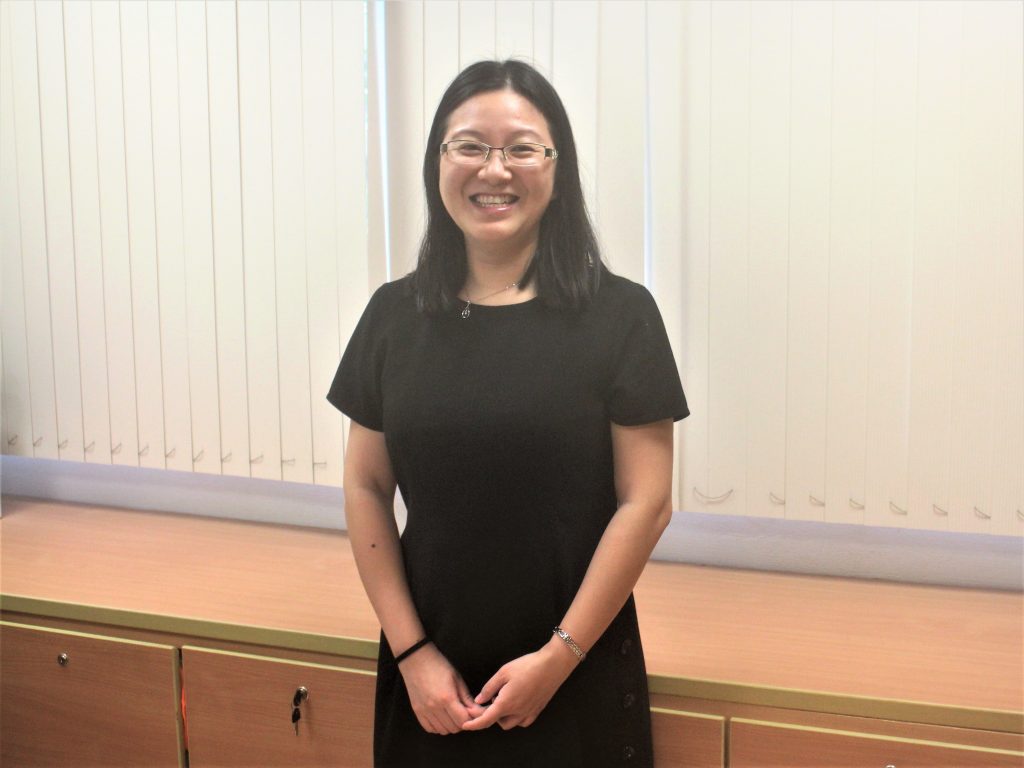A microgenetic study by Dr. Ding Xiao Pan reveals that preschoolers spontaneously discover deception and systematically use it to win a competitive game within just a few days.
How do young children discover deception?
To answer this question, recent research by Dr. Ding Xiao Pan from the Department of Psychology in NUS, Dr. Gail Heyman (University of California, San Diego), Dr. Genyue Fu (Hangzhou Normal University), Ms.Bo Zhu (Zhejiang Normal University), and Dr. Kang Lee (University of Toronto) has used a microgenetic method that involves making multiple observations of children’s behaviour over a short period of time.
Dr. Ding (pictured above) commented,
Deception is a social skill, which children as young as three years old begin to use as a strategy for personal gain. We were interested in the possibility that social experiences and cognitive abilities might contribute to children’s discovery of deception. Our current findings suggest that competitive games can help children gain this important insight, and children’s underlying cognitive skills can also speed up this developmental timeline.
In their study, preschoolers were invited to play a zero-sum game, in which they competed with an adult experimenter to win treats during 10 trials in each of 10 consecutive days. The children were told to act as a hider by concealing a treat in one of two cups while the experimenter closed her eyes, and that they would lose the treat if the experimenter later found it, but would get to keep the treat if the experimenter did not find it. After the children announced that they had hidden the treat, the experimenter asked, “Where did you hide the treat?” The children then either verbally or non-verbally (e.g., pointing) referred to one of the two cups.
The researchers found that most children initially consistently provided truthful information to the experimenter and thus lost the game. In fact, on the first day, the children deceived (i.e., referred the experimenter to the empty cup) only on 12% of the trials. However, by the tenth day, they deceived 84% of the time to win the game, suggesting that self-interest incentives in competitive situations play a vital role in the emergence of deception in children.
Importantly, faster patterns of deception discovery were predicted by both theory of mind and executive skills in children. Whereas theory of mind relates to the ability to represent and understand others’ mental states, executive function involves keeping track of both truthful and false information while inhibiting the divulgence of truthful information. Children who had higher levels of both skills immediately discovered the usefulness of deception after using it at least once on the first day, and used it 100% of the time from the second day onwards to win all the treats. In contrast, the rest of the children did not deceive on the first day, and subsequently either steadily increased their use of deceit or never systematically used it to win the game.
These findings shed light on moral education and parenting. As Dr. Ding noted, “Children’s deception emerges around 3 years of age. It is actually a developmental milestone for both their cognitive and social abilities. It is not necessary for parents to panic when their children begin to tell lies. Instead, it is a time for parents to socialize children about when it is okay to tell lies (e.g., when someone gives you a gift you don’t like, and you don’t want to hurt his/her feelings) or not okay to tell a lie.”
The researchers are currently examining Singaporean children’s lying behaviour such as prosocial and antisocial lies, and exploring the social and cognitive factors that may contribute to children’s (dis)honest behaviour.
Reference
Ding, X. P., Heyman, G. D., Fu, G., Zhu, B., & Lee, K. (2017). Young children discover how to deceive in 10 days: A microgenetic study. Developmental Science, e12566. http://dx.doi.org/10.1111/desc.12566


